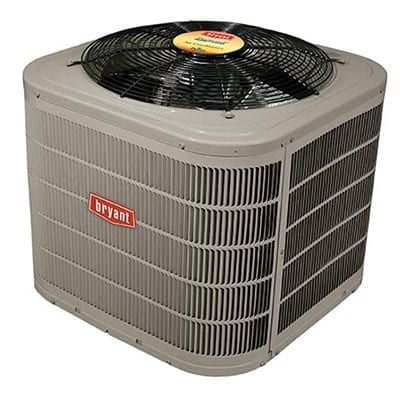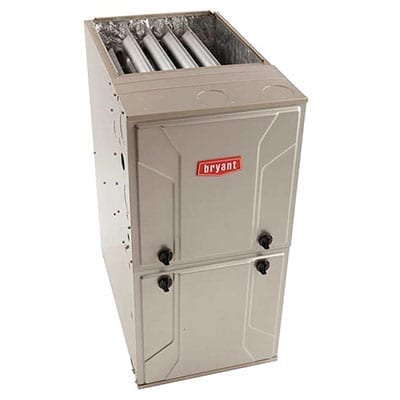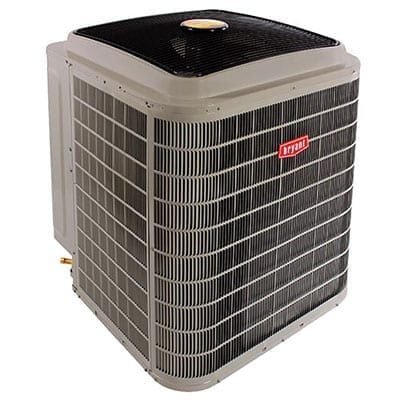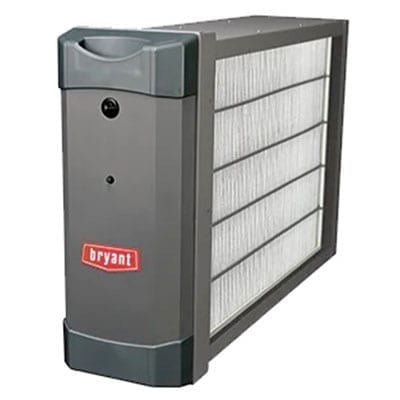Commercial HVAC for Distilleries
Commercial HVAC systems, including distillery chillers and refrigeration, play a pivotal role in the distilling process. These systems use industrial compressors to ensure precise temperature and humidity control, which is crucial for producing high-quality spirits. Distilleries rely on distillery chillers to maintain optimal conditions throughout the distilling production cycle, from malting to aging. These systems are crucial for refrigeration. By providing consistent environmental parameters, commercial HVAC solutions contribute significantly to the quality and consistency of distilled spirits. This is especially important in the process of distilling, where precise temperature control is crucial. Industrial compressors are used to regulate the pressure and temperature during distillation, ensuring optimal conditions for the production of high-quality spirits. Additionally, chillers play a vital role in maintaining the desired temperature during fermentation and storage, further enhancing the final product. Furthermore, HVAC systems are essential in malting facilities, where controlled temperature and humidity levels are necessary for the germination of barley. Overall, these HVAC The ability to create a controlled environment is paramount for distilleries seeking to uphold stringent standards in their production processes. This includes the use of distilling and malting techniques, as well as the installation of a chiller and an industrial compressor. With this understanding, it becomes evident that the choice of HVAC system, including the use of an industrial compressor, chiller, and glycol, directly impacts the overall product quality and operational efficiency within distilleries.
The Essential Role of HVAC in Distillery Operations
Regulating Temperature and Humidity
Commercial HVAC systems, such as chillers and compressors, are vital for distilleries as they help maintain the optimal temperature and humidity levels necessary for the various stages of the distillation process. These systems use glycol to regulate the temperature, ensuring that the grain is treated correctly. For instance, during fermentation, specific temperature ranges are required to facilitate the growth of yeast and ensure proper alcohol production. This process often involves the use of glycol to regulate temperatures, a compressor to maintain pressure, and grain as the primary source of fermentable sugars. With HVAC systems, distilleries can precisely control these conditions using a compressor, ensuring consistent product quality.
In addition to temperature regulation, HVAC systems also manage humidity levels within various areas of the distillery using a compressor. This is particularly important during storage and aging processes where excessive moisture can impact the quality of spirits, especially when using a compressor. By effectively controlling humidity with the help of a compressor, commercial HVAC units safeguard against mold growth and maintain ideal conditions for spirit maturation.
Ensuring Air Quality and Ventilation
Proper ventilation facilitated by commercial HVAC systems with a compressor is critical in preventing the accumulation of harmful gases and odors that may result from various distillery operations. These compressor systems efficiently remove airborne contaminants such as ethanol vapors or other chemical byproducts, thereby safeguarding the health and safety of distillery workers while maintaining compliance with regulatory standards.
Moreover, the effective air circulation provided by HVAC units, which include a compressor, ensures that fresh air is consistently introduced into workspaces while stale air is removed. This constant airflow not only contributes to a comfortable working environment but also mitigates potential hazards associated with stagnant or contaminated air.
Maintaining Clean Working Environment
By actively managing temperature, humidity, and air quality factors, commercial HVAC solutions contribute significantly to sustaining a clean and safe working environment within distilleries. Consistent airflow helps prevent condensation buildup on surfaces which could otherwise lead to mold formation—posing both operational challenges as well as health risks if left unaddressed.
Furthermore, regulated climate conditions supported by efficient HVAC systems aid in preserving raw materials used in spirit production such as grains or fruits—preventing spoilage due to unfavorable environmental factors like excessive heat or moisture content.
Geothermal Heating and Cooling Advantages for Distilleries
Energy-Efficient Solutions
Geothermal systems provide energy-efficient heating and cooling solutions for distilleries. By harnessing the natural heat from the earth, these systems significantly reduce the reliance on traditional energy sources. This results in substantial cost savings for distillery operations. The geothermal process involves transferring heat to or from the ground to regulate indoor temperatures, ensuring a comfortable environment while minimizing energy consumption.
Geothermal systems utilize the stable temperature of the earth to efficiently regulate heating and cooling within a distillery. Unlike conventional HVAC systems that rely on external factors such as fluctuating outdoor temperatures, geothermal solutions maintain consistent performance regardless of weather conditions. This reliability ensures that production processes are not disrupted due to variations in temperature, contributing to smoother operations.
Reduced Operating Costs and Carbon Emissions
Implementing geothermal heating and cooling can lead to significant reductions in operating costs for distilleries. With lower energy consumption compared to traditional HVAC systems, businesses can experience decreased utility bills while maintaining optimal working conditions within their facilities. By reducing reliance on fossil fuels or electricity for heating and cooling needs, distilleries contribute positively towards environmental conservation efforts.
The utilization of geothermal energy plays a crucial role in lowering carbon emissions associated with cooling and heating processes in distilleries. As an environmentally friendly alternative to conventional methods, it aligns with sustainability initiatives aimed at reducing carbon footprints across various industries including beverage production facilities like distilleries.
Addressing Unique Challenges of Distillery Chilling Systems
High Heat Loads
Distilleries encounter high heat loads during the fermentation and distillation processes. This creates a need for specialized chilling systems to effectively manage the elevated temperatures. The cooling equipment must be capable of handling the substantial thermal energy generated during these critical stages of production. For instance, when fermenting grains or fruits, there is a significant rise in temperature due to the exothermic nature of the process.
The distillation process also contributes to high heat loads as it involves heating fermented liquid to produce vapor and then condensing it back into liquid form. These extreme temperature fluctuations necessitate robust chilling solutions that can efficiently mitigate the intense heat levels experienced during distillation.
Specialized Chilling Equipment
To address these challenges, commercial HVAC systems designed specifically for distilleries are essential. Such systems are equipped with specialized components tailored to handle the unique cooling demands of this industry. For example, glycol chillers are commonly used in distilleries because they provide consistent and precise temperature control necessary for maintaining product quality.
Air-cooled or water-cooled chillers with high cooling capacities may be employed based on specific operational requirements. These advanced chilling units ensure that optimal conditions are maintained throughout each stage of production, allowing for consistent product quality and characteristics.
Achieving Desired Product Characteristics
Efficient chilling systems play a pivotal role in ensuring that distilleries achieve their desired product characteristics and flavors. By effectively managing heat loads at various stages of production, these systems contribute to maintaining ideal fermentation temperatures and controlling condensation rates during distillation processes.
Moreover, precise temperature control provided by specialized commercial HVAC equipment directly impacts the overall quality and taste profiles of distilled spirits such as whiskey, vodka, rum, or gin. Consistency in cooling ensures that each batch meets predetermined standards while preserving distinct flavor notes characteristic of different types of spirits.
Heat Exchangers and Their Importance in Distilleries
Optimizing Energy Usage
Commercial HVAC for distilleries relies heavily on heat exchangers to optimize energy usage. These components are crucial in transferring heat between different process streams, ensuring that no energy goes to waste. For example, during the distillation process, heat exchangers recover waste heat from various sources and use it to preheat incoming feed streams. This helps reduce the overall energy consumption of the distillery’s operations.
Heat exchangers also play a significant role in maintaining ideal temperature conditions within the distillation equipment. By efficiently transferring heat, they contribute to creating an environment where processes can occur at optimal temperatures without excessive energy expenditure.
Properly designed commercial HVAC systems for distilleries incorporate high-quality heat exchangers that enhance efficiency by recovering and redistributing thermal energy throughout various stages of production.
Enhancing Efficiency and Reducing Energy Consumption
The integration of well-designed heat exchangers into commercial HVAC systems is essential for enhancing overall efficiency while reducing energy consumption in distilleries. An effective example is found in condensers used during the cooling phase of alcohol vapor; these units utilize ambient air or water as a cooling medium, enabling efficient condensation without unnecessary power usage.
Plate-and-frame heat exchangers efficiently transfer thermal energy between two fluid streams while keeping them physically separated. This design prevents cross-contamination and ensures that each stream maintains its integrity throughout the heating or cooling process.
The Benefits of Low-pressure Steam Boilers for Distilleries
Precise Temperature Control
Low-pressure steam boilers are essential in distilleries for maintaining precise temperature control during various processes such as mashing, cooking, and fermentation. This precise control is crucial to ensure the quality and consistency of the final product. For example, during mashing, where starches are converted into fermentable sugars, having the ability to precisely regulate temperatures allows distillers to achieve optimal enzymatic activity without denaturing enzymes due to excessive heat.
In addition to this, low-pressure steam boilers enable distilleries to carefully manage the cooking process. By maintaining a specific temperature during cooking or boiling stages, distillers can prevent scorching or burning ingredients. This is particularly important when working with delicate flavors and aromas that could be compromised by uneven heating.
The ability of low-pressure steam boilers to provide precise temperature control ensures that each step of the distillation process is executed with accuracy and consistency.
Efficient Heat Transfer
Another significant benefit of using low-pressure steam boilers in distilleries is their efficient heat transfer capabilities. These systems efficiently transfer heat throughout the production facility while minimizing energy waste. For instance, during fermentation where yeast transforms sugars into alcohol and other byproducts like carbon dioxide and heat, low-pressure steam boilers effectively distribute heat evenly across large vats or tanks without creating hot spots.
Moreover, these boilers optimize energy usage by delivering consistent heating without fluctuations in temperature. This not only contributes to cost savings but also supports sustainable practices within the distillery industry by reducing overall energy consumption.
Emergency HVAC Services: Ensuring Continuous Distillery Production
Preventing Production Downtime
Commercial HVAC systems play a crucial role in maintaining the optimal environment for various processes within distilleries, such as fermentation and malting. However, these systems are susceptible to failures that could lead to costly production downtime. To prevent this, distilleries rely on emergency HVAC services to ensure continuous operations. Quick response and repair are essential to minimize the impact of system failures on distillery operations. For instance, if the cooling system malfunctions during fermentation, it can disrupt the entire process and result in significant product loss.
To mitigate such risks, regular maintenance is key. By conducting routine inspections and servicing of HVAC equipment, potential issues can be identified early on before they escalate into emergencies. This proactive approach helps prevent unexpected breakdowns that could halt production activities at distilleries. Monitoring the performance of HVAC systems allows for the detection of any anomalies or declining efficiency indicators before they develop into critical problems.
Importance of Equipment Maintenance
Regular maintenance not only ensures optimal performance but also extends the lifespan of HVAC equipment used in distilleries. Components such as air handlers, chillers, boilers, and ventilation units need periodic attention to function efficiently without disruptions. For example:
-
Cleaning condenser coils prevents dirt buildup that can reduce heat transfer efficiency.
-
Checking refrigerant levels helps maintain proper cooling capacity.
-
Inspecting electrical connections ensures safe operation and reduces the risk of unexpected breakdowns.
Remanufactured Compressors in Distillery Chilling Systems
Cost-Effective Solution
Using remanufactured compressors in distillery chillers provides a cost-effective solution for distilleries. These compressors undergo rigorous testing and refurbishment processes, ensuring their reliability. By opting for remanufactured compressors, distilleries can save on costs without compromising the performance of their chilling systems. This is especially beneficial for distilleries looking to optimize their budget while maintaining high-quality production standards.
Utilizing remanufactured compressors not only benefits a distillery’s financial bottom line but also extends the lifespan of existing equipment. For example, if a commercial HVAC system at a distillery requires an industrial compressor replacement, choosing a remanufactured option can significantly reduce the overall investment required.
Environmental Impact
In addition to being cost-effective, using remanufactured compressors in distillery refrigeration systems contributes to reducing environmental impact. By extending the lifespan of existing equipment through these refurbished components, distilleries actively participate in sustainable practices within their operations. This aligns with the growing emphasis on environmentally friendly initiatives across various industries.
For instance, by incorporating remanufactured compressors into their chilling systems, distilleries demonstrate commitment to sustainability without sacrificing operational efficiency or product quality. This approach reflects positively on the brand image as consumers increasingly prioritize eco-friendly practices when making purchasing decisions.
Expertise in Designing HVAC Systems for Distilleries
Unique Requirements
Designing commercial HVAC systems for distilleries demands specialized knowledge of the industry’s unique requirements. The experienced professionals consider factors like space constraints, process demands, and energy efficiency. For example, in a distillery, the need to maintain specific temperature and humidity levels is crucial during various stages of the distilling process.
Tailored HVAC designs are essential to optimize productivity, product quality, and operational costs in a distillery setting. These tailored designs ensure that the heating, ventilation, and air conditioning systems are customized to meet the specific needs of each area within a distillery. This includes areas such as fermentation rooms, still rooms, barrel storage areas, tasting rooms, and bottling facilities.
Process Demands
The design of an HVAC system for a distillery must take into account the unique process demands involved in spirit production. For instance, during fermentation processes where yeast converts sugars into alcohol and carbon dioxide gas at varying rates depending on factors like ambient temperature – maintaining consistent temperatures is critical for successful fermentations.
In addition to this consideration is also ensuring proper ventilation throughout different stages of production to control odors from fermenting materials or spirits aging in barrels. Moreover,energy efficiency plays a vital role as it impacts both cost-effectiveness and environmental sustainability; thus utilizing efficient cooling methods while minimizing energy consumption becomes imperative.
Balancing Production Speed with Consistency Using HVAC
Efficient Fermentation and Maturation
Commercial HVAC systems are crucial for distilleries as they help maintain the consistent temperature and humidity levels necessary for efficient fermentation and maturation processes. By controlling these factors, distillers can ensure that the yeast in the fermentation process works optimally, leading to a high-quality end product. For instance, during the fermentation of whiskey mash, maintaining an optimal temperature is essential to encourage yeast activity while preserving desirable flavors.
Proper airflow control within a distillery’s production area is vital to achieve even distribution of heat. This ensures that every part of the facility experiences uniform conditions, promoting consistent results across all batches of distilled spirits. An example would be ensuring that each barrel in which spirits mature receives equal exposure to controlled temperatures and humidity levels.
Achieving Desired Flavors and Characteristics
Balancing production speed with controlled conditions through HVAC systems is key for achieving desired flavors and characteristics in distilled spirits. For instance, in bourbon production, where aging plays a significant role in flavor development, maintaining precise environmental conditions throughout the aging process is critical. This allows distillers to create products with consistent taste profiles regardless of variations in external climatic conditions or seasonal changes.
The ability to regulate temperature also impacts other aspects such as chemical reactions during spirit maturation. In rum production, for example, precise temperature control influences how compounds interact within barrels over time—ultimately influencing aroma and taste profiles.
Conclusion
The HVAC system is a critical component in the distillery industry, ensuring optimal conditions for production. From geothermal heating to low-pressure steam boilers, each aspect plays a vital role in maintaining efficiency and quality. By addressing unique challenges and utilizing expert design, distilleries can achieve a balance between speed and consistency. However, it’s essential for distilleries to prioritize regular maintenance and emergency services to minimize downtime and ensure continuous production.
As the distillery industry continues to evolve, staying updated with the latest HVAC technologies and best practices is crucial. Distilleries should consider partnering with HVAC experts who specialize in designing systems tailored to their unique needs. By doing so, they can enhance their operations, reduce energy costs, and maintain high-quality production standards.
Frequently Asked Questions
What are the specific HVAC challenges faced by distilleries?
Distilleries face unique challenges such as maintaining consistent temperature and humidity levels, controlling odors, and managing ventilation due to the nature of their operations.
How does geothermal heating and cooling benefit distilleries?
Geothermal systems offer energy efficiency, cost savings, and environmental sustainability for distilleries by utilizing stable ground temperatures for heating and cooling processes.
Why is expertise in designing HVAC systems crucial for distilleries?
Expertise in HVAC design ensures that the system meets the specific needs of a distillery, including temperature control during fermentation, aging processes, and maintaining product quality.
What role do heat exchangers play in distillery operations?
Heat exchangers are essential in distilleries for efficient heat transfer during processes like condensation, evaporation, and temperature regulation in various stages of production.
How do low-pressure steam boilers benefit distilleries?
Low-pressure steam boilers provide precise control over heating processes critical to production while offering energy efficiency and meeting sanitation standards.
Commercial HVAC troubleshooting
Related Information
Commercial HVAC for Escape Rooms
Commercial HVAC for Employment Agencies
Commercial HVAC for Dry Cleaners
Commercial HVAC for Driving Schools
Commercial HVAC for Dental Clinics
Commercial HVAC for Day Spas
Commercial HVAC for Dance Studios
Commercial HVAC for Cycle Shops
Commercial HVAC for Custom Framing Shops
The Primary Services Provided By Our Local HVAC Company
Areas We Service
Click on the area below to see what your neighbors are saying about their recent experiences with our company.
Our Locations
14913 SE Kellogg Ave
Milwaukie, OR 97267, USA
4409 SE 24th Ave, Suite 35
Portland, OR 97202, USA




